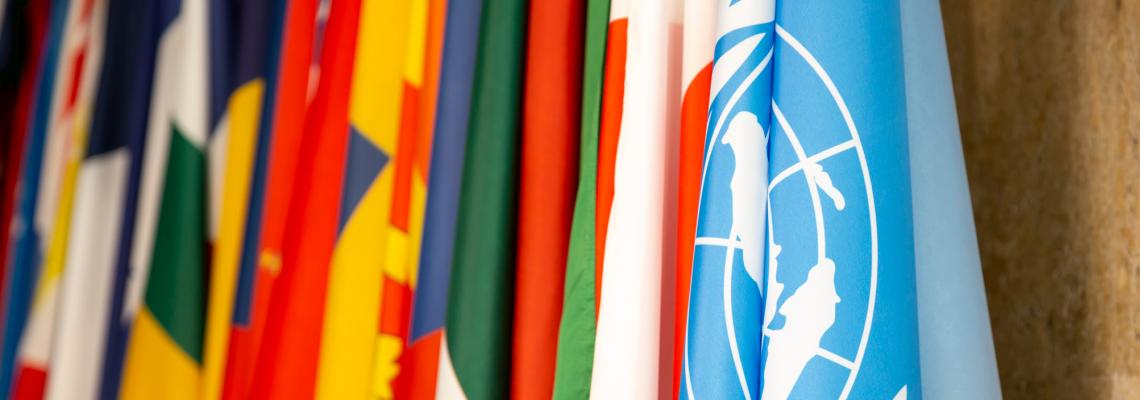Sustainable Development Goals for 2015-2030
Online, Open and Flexible Learning as A Key Enabler
In the last months, considerable activity on the international stage has been dedicated to outlining new goals and actions for education leading up to the preparation and acceptance of the United Nations Sustainable Development Goals for 2015-2030, to be finalized in September 2015. Among the recommended Sustainable Development Goals is: “Ensure inclusive and quality education for all and promote lifelong learning”.
Recognizing the Roles of Technology
Other international meetings have added specificity to this goal. The recent World Education Forum (WEF) in Incheon, Korea acknowledged in its conclusions the importance of “flexible learning pathways as well as the recognition, validation and accreditation of knowledge, skills and competencies acquired through non-formal and informal education; and the use of information and communication technologies”. The Qingdao, China, International Conference on ICT and Post-2015 Education, building on the WEF, set an ambitious agenda for the use of ICT, including mobile learning and open and online solutions, “to strengthen education systems, knowledge dissemination, information access, quality and effective learning, and more efficient service provision”.
The Contributions of Online Learning
As part of this global consideration of the future of education, UNESCO and the International Council for Open and Distance Education (ICDE) cooperated in the organization of three Policy Forums, focused on access, equity, and quality, specifically linked to online, open and flexible education. The first Policy Forum, held in Bali in December 2014, issued a message outlining policy and principles centered on Equity – Access - Quality: Learner Success and consisting of broad policy recommendations for government, institutions and faculty.
A follow-up Global High-Level Policy Forum was subsequently held in Paris in June 2015 to move from policy to action. The more than 150 participants from 55 countries issued a call to action for governments, institutions, academics, and students to transform higher education to respond to both the opportunities and challenges represented by online, open, and flexible education.
The Paris Message called on governments to provide effective policies, regulations, and funding, as well as to work with institutions to support teaching excellence, research, new pedagogical approaches, and student engagement and success. Academics need support as they engage with digital teaching and learning practices, including their capacities as mentors and developers of online resources and courses. Students require support to be effective online learners, both within higher education and as a lifelong learners and creators.
Preparing for and Leading at the Global High Level Policy Paris Forum
Contact North | Contact Nord worked with UNESCO and ICDE on the Paris Forum, playing a pivotal role in its preparation, organization, and success. Maxim Jean-Louis, President - Chief Executive Officer of Contact North | Contact Nord, is a member of the Executive Committee of the International Council for Open and Distance Education (ICDE).
Collaborating with UNESCO and ICDE, Contact North | Contact Nord prepared the background document to guide the discussion in Paris on the theme of Online, Open and Flexible Higher Education for the Future We Want. Within this document, a discussion paper details key trends and challenges in access, equity, and quality for online and open higher education internationally and a survey analysis presents the responses of 105 educators from 53 countries to questions concerning strategies, benefits, challenges, and policy alternatives for online, open, and flexible education.
Contact North | Contact Nord prepared precise expectations for each speaker’s presentation for panels and workshops, emphasizing practicality and brevity – and resulting in clear, concise and enlightening talks interspersed with vibrant and engaged audience participation. Maxim Jean-Louis chaired the first day and half of the High Level Policy Forum.
The Next Step
The next step in this series of international sharing and consensus-building focused on open and online learning is to balance the declarations and messages from previous meetings and the realities of higher education on a more regional level and suggest actions for regional agendas to develop the theme Higher Education for the Sustainable Future We Want: The Way Ahead for Online, Open and Flexible Learning.
This is the task that will be addressed at a High Level Policy Forum in Pretoria, South Africa, on 17 October 2015, organized by ICDE in partnership with UNESCO, the Commonwealth of Learning and the Open Education Consortium.



